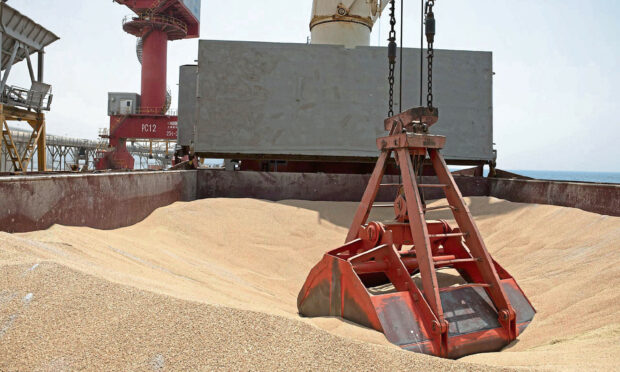Agriculture and food security were eclipsed in the hour-long state of the union speech delivered by the European Commission president, Ursula von der Leyen.
Instead, she concentrated on the humanitarian aspects of the war in Ukraine, while warning that the energy crisis created by Russia’s invasion would have a significant impact on all EU member states facing gas shortages.
She warned an energy crisis in Europe could easily become an economic crisis – a reference to the risk of gas, even electricity, rationing if voluntary initiatives do not work.
Healthy and resilient agriculture
She did acknowledge Europe needed healthy and resilient agriculture that preserved biodiversity and soil fertility.
The European Commission says that despite drought for much of the summer there was sufficient rainfall to deliver reasonable yields from spring crops in Ukraine.
However, this has been more than offset by the impact of the Russian invasion on once-fertile land. There have also been problems obtaining seeds, fertiliser, and even tractor fuel.
Farmers have, however, proved resilient in the face of the invasion. According to the EU’s joint research council (JRC) crop bulletin, 20%-plus of wheat and barley production, 13% of rapeseed and 10% of sunflowers are in areas affected by the conflict.

Food security
The JRC says this will reduce harvestable crops and overall production. This confirms that even if the blockade of Black Sea ports continues to be eased, Ukraine is far from being the export force it was for grain and other crops.
Meanwhile, lobby organisation representing agriculture, food processing and the agricultural supply industry have come together to warn the European Commission of the consequences for food security if energy costs continue to rise.
They have also again said that if rationing, particularly of gas, has to be imposed, their sectors should be given special treatment to maintain production.
In a statement targeted at the commission they said the industry was in a unique perfect storm because of rising costs and the impact which droughts have had on production and raw material availability when events in Ukraine have reduced imports.
